Related Content
Content
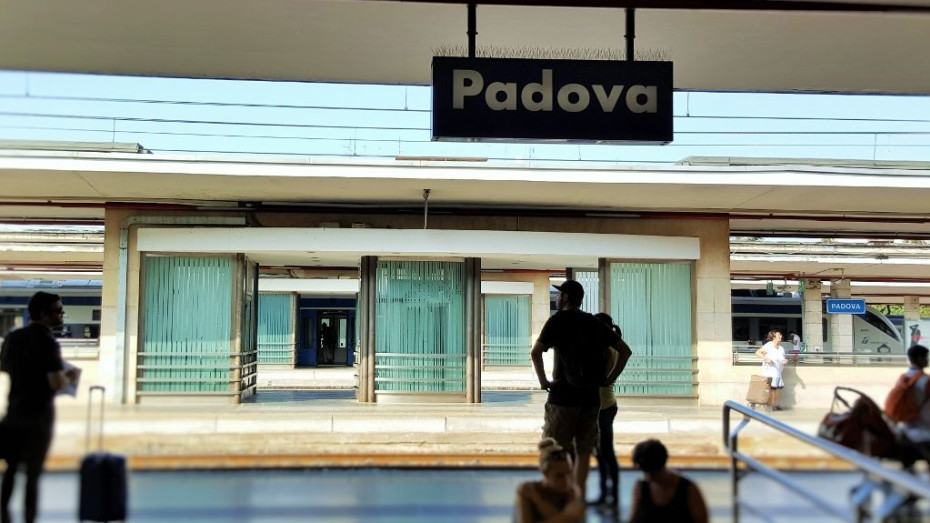
Saving Money while on an Interrail or Eurail Trip: tips and info
How to get the most value for money when using Eurail or InterRail passes, plus tips for saving on accommodation and being strategic with the additional fees
Share
These tips for saving money during an Interrail or Eurail itinerary only became apparent to SMTJ when using rail passes to travel to more than 200 locations across Europe by train, so the more OBVIOUS tips such as 'stay in hostels instead of hotels have been deliberately omitted.
So it seemed worthwhile to pass them on, 10 minutes of reading should save you 10s of €s!
Also follow Eurail or Interrail on social media, as both passes run intermittent promotions, which can enable big savings on the standard prices!
Four Tips When Booking Accommodation:
An expanded version of this advice including recommended hotels is available HERE.
1: There are plenty of online articles suggesting that 7 – 10 weeks ahead is the optimum booking window for getting the best rates on hotel rooms, and my experience backs this up.I started the planning of my most recent itinerary only 6 weeks ahead, but pushing back the entire trip by two weeks saved more than €300 on accommodation fees.
2: The order in which you spend the night(s) in each of your locations can matter.
When special events are being staged in a city, accommodation becomes particularly pricey, so checking that you'll be avoiding them can be a big plus.
A lesson SMTJ learned the hard way when we arrived in Berlin and discovered it was the weekend of its marathon.
It can be much cheaper to follow an itinerary in an OPPOSITE direction, to that which you originally had in mind.
3: Fabulous cities are likely to be on your must see list, but you don’t have to STAY in them when travelling with a rail pass– instead travel to/from them by train.
Alternative cities worth considering for overnight stays:
- Amersfoort, Haarlem or Rotterdam, instead of Amsterdam
- Freiburg or Mulhouse, instead of Basel
- Olten, instead of Bern/Basel/Zurich
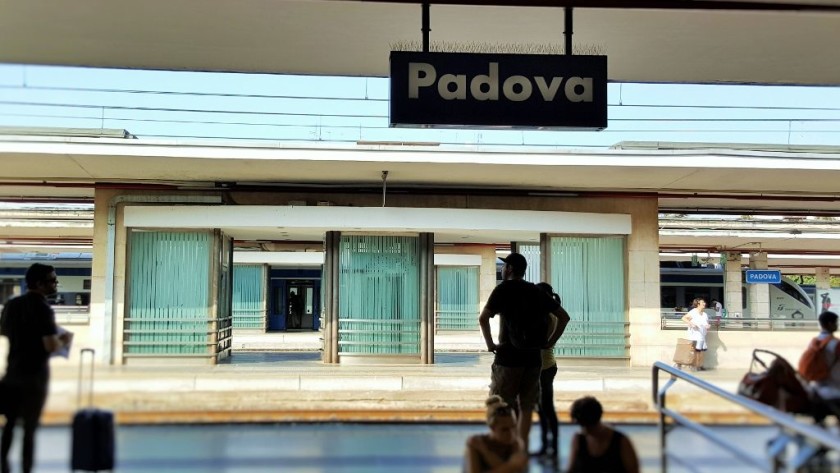
- Padua, instead of Venice
- Winterthur – instead of Zurich
- Girona – instead of Barcelona
- Reading – instead of London
- Nyon - instead of Geneva and Lausanne
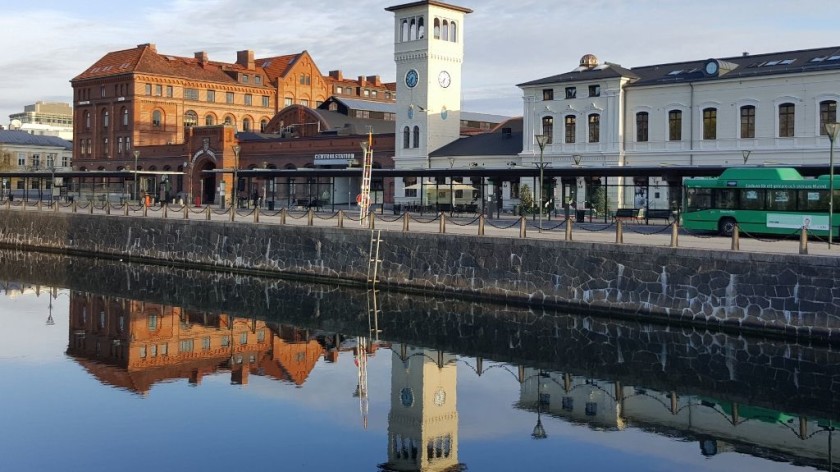
- Malmo – instead of Copenhagen
Adopt a mind-set that where you go is more important than where you stay.
Also on the morning of your next long journey, you can often also rise later, if the train will be departing from your chosen location, after it has commenced its journey elsewhere.
4: Quality accommodation at a good price in city centres PLUS easy station access is the exception and not the norm.
Stations may not be located in the smartest part of town, so room rates near stations can be particularly expensive when the station does also happen to be in a nice neighborhood.
So the better option can be to stay in the suburbs, near stations served by local trains from and to the city; your rail pass will nearly always be valid on the local trains, but not the metros/subways.
Also if that place you were considering in the city centre is a 15 min or more walk from the main station, staying by a station on a local line can also be less complicated.
Three Ideas for saving when booking train reservations:
1: We’re huge fans of Interrail (and Eurail too) it wouldn’t have been possible to produce ShowMeTheJourney without it, but there are cheaper alternatives to using the Eurail reservation service or the Interrail reservation service
Primarily because they both charge fees per reservation and not per booking, so costs can soon add up.
However, many rail pass reservations can now be booked online, with NO booking fees:
These include:
- In Germany and from Germany on DB (though not Thalys trains and don’t book the Germany – Italy EC trains on DB either)
- In Sweden on Snaabtag trains - including international journeys from Sweden on SJ
- For train journeys within Austria (reservations are optional) and on day and night trains to from Austria; book on the OBB website, the step-by-step instructions are here.
2: The sooner you book reservations for journeys by TGV trains the more you will save, that's because a sliding scale of rail pass reservations fees applies in France.
3: Or plan your itinerary so that you pass through a major German station, a hauptbahnhof, towards the beginning of your trip.
At a Reisezentrum travel desk you can book reservations on nearly any train in Europe, including those that don’t travel to or from Germany; and you won’t be charged any booking fees.
Also If you want to use a pass restricted to a set number of days of travel, you'll now only use up one day of your travel allowance when taking an overnight train.
While on your trip:
Here's SIX ideas for how to save when planning and taking your trip.
1: Avoid the countries in which you HAVE to reserve on express trains
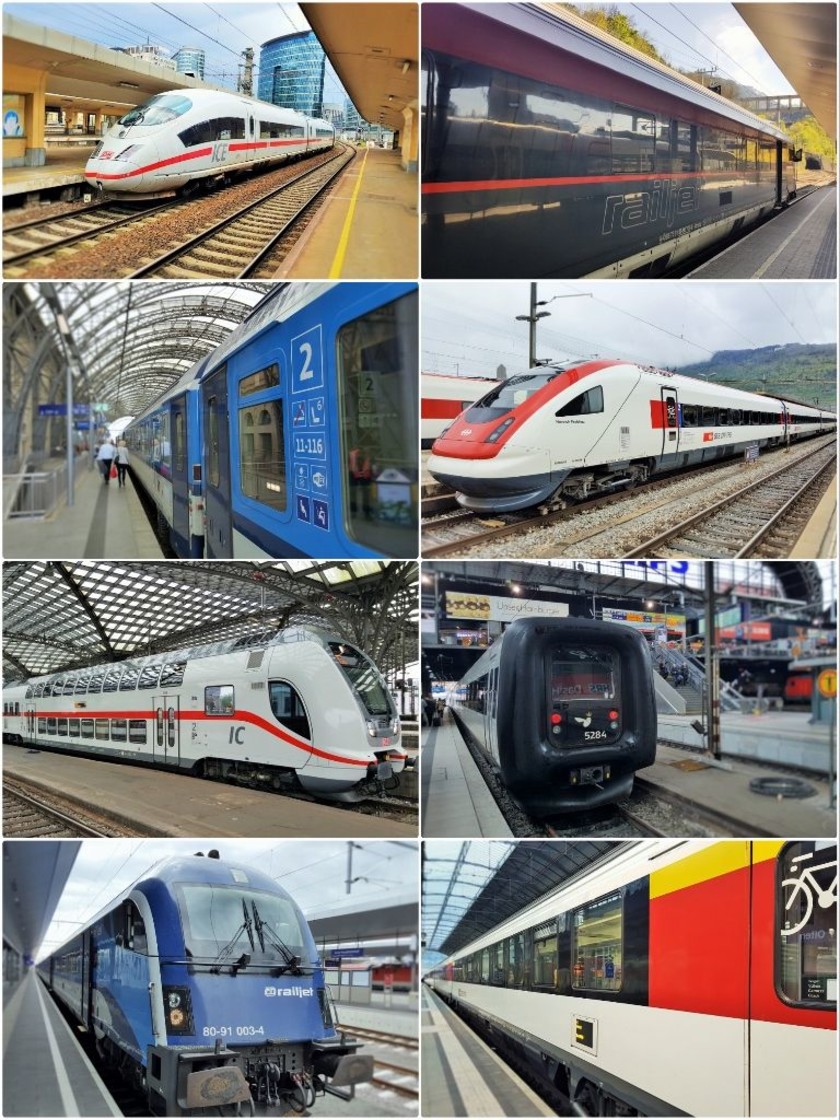
‘Eurail and Interrail passes are a rip off because of all those extra charges you have to pay these days’ is a re-occurring theme of multiple articles and comments that you can easily find online.
Our counter-argument to those opinions is if you have an Interrail or Eurail pass you don’t HAVE to pay additional fees on ANY domestic train in Austria, Belgium, Demark, Germany, Great Britain, Ireland, Luxembourg, Norway (except for the Oslo <> Bergen route), Switzerland and The Netherlands.
So you don’t have to pay any additional charges in central Europe – handy!
You also don’t have to pay any fees on more than 95% of trains in Slovakia, Sweden and The Czech Republic.
Reservation fees aren’t required on all or MOST of the international express/high speed daytime trains to and from Austria, Belgium, Denmark, Germany, Hungary and The Netherlands; and that includes the very wonderful international ICE trains.
Though when travelling from June 1st to Sep 1st, reservations are now mandatory when travelling on international express trains between Germany and Austria, Belgium, Czechia, Denmark and The Netherlands and vice versa.
We've got a lot more info about which European trains don't and do have to be reserved HERE
This GUIDE includes info on how to avoid reservation fees, when travelling in the countries most popular with Eurail and Interrail pass users.
2. Take alternative routes:
If travelling to a destination on your must-see list involves taking the small number of train services, with rail pass reservation fees that are more than €10, there are usually alternative journey options available.
They will be slower and involve more connections, but they can be more scenic.
There are also some less than obvious stations which offer connections that enable the more expensive reservation fees to be swerved:
- Brennero; take local commuter trains between Innsbruck and Brennero; and Regionale trains between Brennero and Verona and avoid the fees payable on the EC trains.
- Cadenazzo; connect between trains on the Milano <> Locarno and Locarno <> Basel and Zurich routes and avoid having to reserve on the EC trains.
- Cerbere and Port Bou; use the regional trains between these towns on the France/Spanish border to travel between them and the likes of Avignon, Barcelona, Girona and Montpellier, to swerve the high reservation costs on the international high speed trains.
- Mouscron; connect between IC trains and avoid the TGV trains when travelling between Lille and Bruxelles.
- Offenburg; connect in and out of the local trains which shuttle between Offenburg and Strasbourg and avoid the reservation fees on the high speed trains which cross the France/Germany border.
3: Take the more expensive trains at the start or end of your trip:
Or another means of avoiding the particularly expensive fees such as those charged the TGV France/Italy and Lyria trains is to put these journeys with high reservation fees at the beginning or end of an itinerary.
Book separate tickets a minimum of couple of weeks in advance, for the trains with the high fees, then make the start or end date of your pass, the day before or after you have made these journeys.
Or opt for a pass with a set number of travel days, but don't use one of the pass days to travel on these trains.
Eurostar Snap tickets
If...
- your travel day plans either solely include taking the Eurostar from to London or a journey between London and other locations in Belgium and The Netherlands
- you're happy to be flexible with timings
...then a Snap ticket is likely to be cheaper than the reservation fee + the cost of using a pass for the day.
4: Your overall savings will be greater in 1st class:
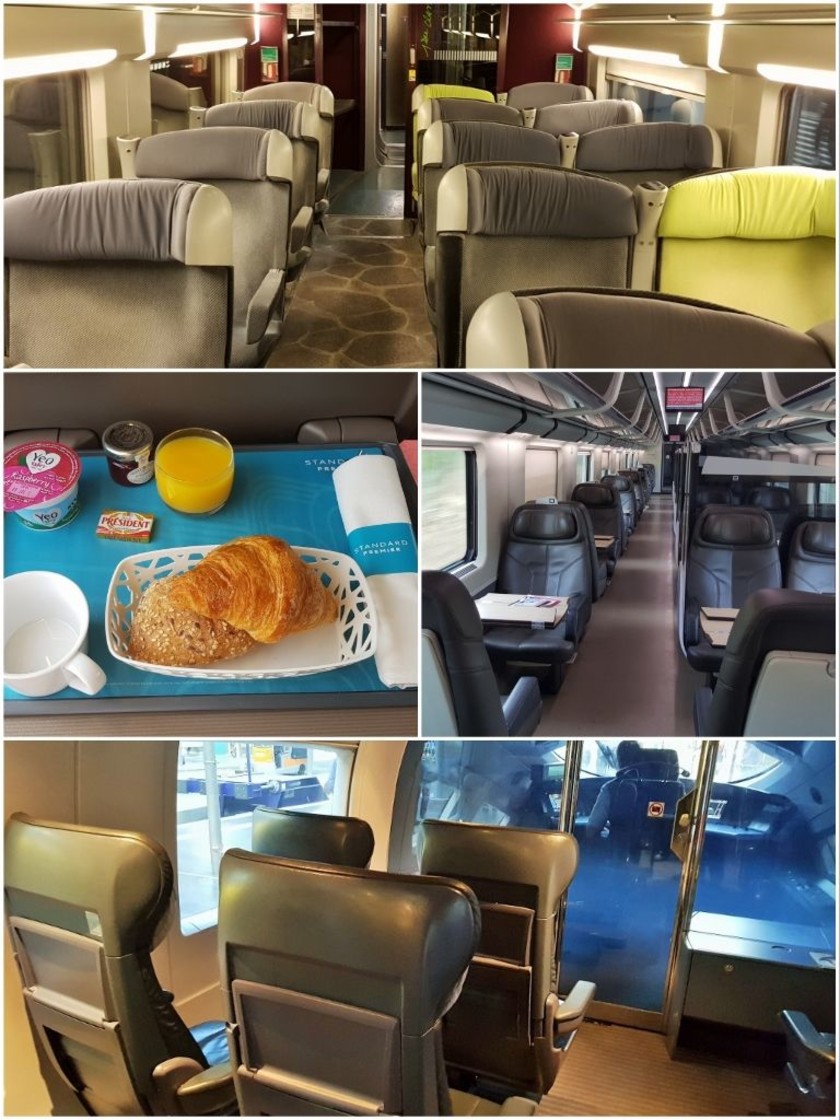
Yes it will be cheaper to use 2nd class passes, but the amount you SAVE will be greater with 1st class passes.
Compare the cost of 1st class tickets with the price of 1st class Eurail and Interrail passes and it soon becomes clear, that 1st class passes can be big money savers - IF you will travelling far enough to make a pass worthwhile.
Make a journey of 4 hours or more and we estimate that you’ll save typically be saving €50 compared to the cost of a standard price 1st class ticket.
In France 1st class passes are particularly good value because the reservation fees are the same on TGV (InOui) trains the Intercités trains irrespective of whether you have a 1st or 2nd class pass.
In Italy if you travel with a 1st class pass you pay the same reservation fees as 2nd class pass users to travel on the fabulous Frecce trains.
Book your 1st class reservation on a high speed Frecce train and you'll be travelling in Business Class; on SMTJ's two most recent 1st class rail pass journeys in Italy we saved a total of more than €150, compared to the ticket price.
5. Go long - distance:
We were conflicted about whether to include this as it is perhaps a little too obvious, but the majority of ‘my rail pass wasn’t worth it’ comments we’ve seen online, arise from simply NOT travelling far enough to make a Eurail or Interrail pass value for money.
Rail passes are intended for travellers embarking on multiple long distance journeys to opposite ends of Europe, or to every corner of a country when using a single country pass.
A very rough-guide is that if you will be using a 10 day ‘Global Pass’, for example, then to make savings against discounted tickets, your average length of journey should be at least around 5 hours in western Europe and 7+ hours in eastern Europe.
Though if you’re happy to compare the cost per day of using a pass with last minute tickets (the Concierge Service can do this for you), this distance drops to around 2.5 hours in western Europe and 4 -5 hours in eastern Europe.
This advice comes with the caveat that there are dozens of variables that come into play when comparing the cost of using a rail passes with train tickets.
But here are TWO examples drawn from recent experiences; comparing 1st class tickets for these journeys, with a 5 day 1st class ‘Global’ Interrail pass.
Example itinerary one:
- Day trip to Hallstat from Salzburg
- Salzburg > Zagreb via Villach
- Zagreb > Budapest via Wien/Vienna
- Budapest > Krakow via Katowice
- Krakow > Berlin via Warsaw
Booking two weeks ahead - tickets were the equivalent of €25 cheaper compared to the cost of the pass AND the required reservations.
So despite these distances the rail pass didn't save money, but a pass was still purchased, in order to provide the freedom to:
(1) Choose a last minute destination on a day trip from Salzburg.
(2) Have the potential to stop off in Wien/Vienna on the way to Budapest.
(3) Because of works on the line in Poland, it was good to have options for travelling on to Krakow.
(4) Explore Berlin by local (S-Bahn) trains when arriving there in the evening.
Having a pass provided the freedom to make these decisions at the last minute.
Example itinerary two:
- Bruxelles > Berlin via Koln
- Berlin > Prague/Praha
- Prague > Wien/Vienna
- Wien/Vienna > Koln/Cologne
- Koln/Cologne > Bruxelles on ICE trains
Booking six weeks ahead, tickets were the equivalent of €40 cheaper compared to the pass (no reservations were required on this itinerary).
So despite these distances the rail pass didn't save money, but despite that a pass was purchased, in order to provide the freedom to potentially;
(1) Stop off in more than one location on the way to Berlin.
(2) Stop over in Dresden on the way to Prague
(3) There was also the possibility of stopping over on the way to Koln to see a friend.
In other words a €40 ticket price saving was traded for the ability to be spontaneous.
6. Mandatory seat reservations can be good value:
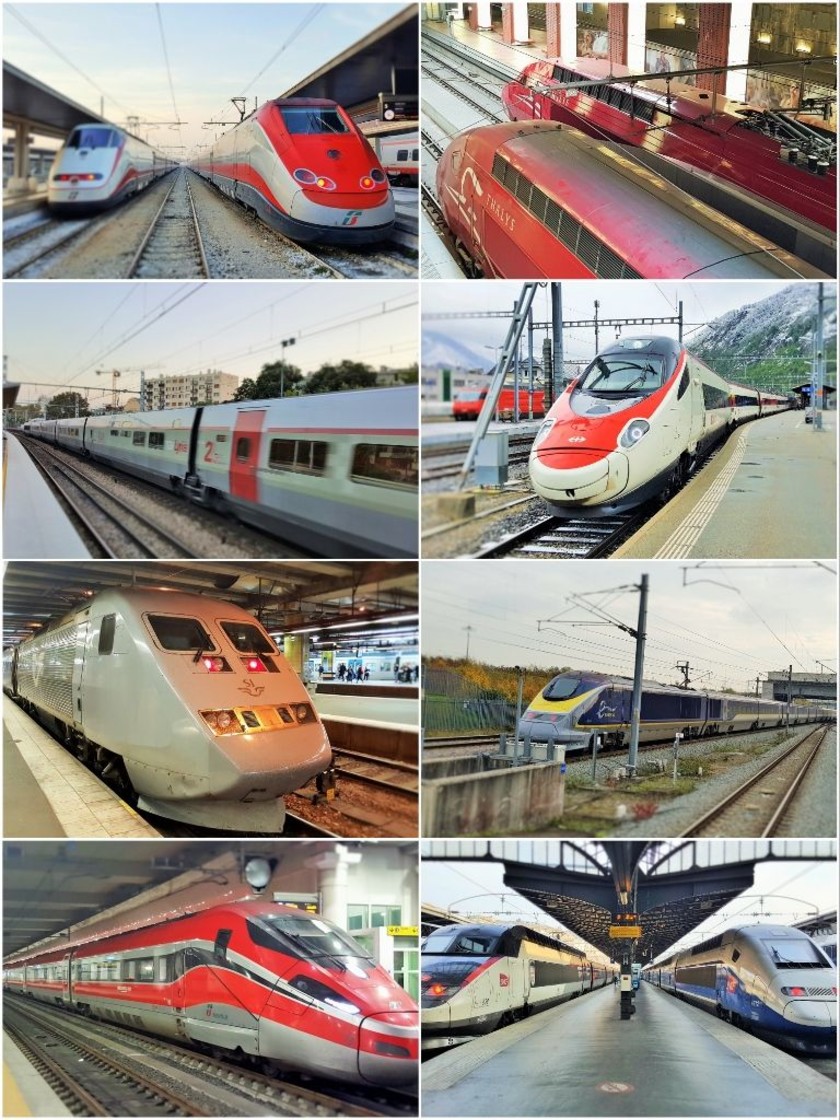
If you want to save as much as you can by using a rail pass there is a school of thought that you should treat the trains, on which Eurail and Interrail pass users have to pay reservation fees as, though they are contagious.
The logic being that that there are nearly always slower, alternative trains on routes, on which no fees are charged.
There is also the value for money perception; paying €11 to use a rail pass on a journey that can cost as little as €19.90 can seem eccentric, when you also factor in the average cost per day of using a pass.
If the journey that you’re HAVING to reserve is under 3 hours, then yes, taking the slower, alternative trains - which don’t require reservation, is usually a better option.
However, if you will be travelling long distance there is another way of looking at this equation.
If when paying for the rail pass reservation fee at the station, just before jumping on the train, you had booked a ticket instead, you could have been typically charged €49.90 instead of €10 for the same journey.
(This ticket price examples are based on Rome – Bologna journey by Frecce train).
On journeys by TGV, Frecce, Eurostar and Thalys trains, those seemingly expensive reservation fees can be 4 x less expensive than the cost of ordinary, NON-discounted, last minute 2nd class tickets; so the balance tips even further if you target paying the reservation fees for your longest journeys.
If you have a 1st class pass and will be travelling long distances in France and Italy, the reservations fees can be particularly good value; you can save more than 5 x times the cost of buying a non-discounted, last minute ticket, even when factoring in the cost per day of using a pass!
The fact that trains with reservation fees can be a particularly good option if you have a 1st class rail pass is illustrated by this itinerary.
It includes taking multiple trains with compulsory reservations, in order to travel as simply as possible between 10 of Europe's most popular cities, but despite that, a 1st Class Adult Pass proves to be good value for money, even when compared to booking the cheapest possible tickets!
Please support ShowMeTheJourney
This second version of ShowMeTheJourney is exciting and new, so we are genuinely thrilled that you are here and reading this, but we also need your help.
We’re striving not to let anything get in the way of providing the most useful service possible, hence a facility has been set up with DonorBox which can be used to support the running costs and make improvements.
Instead of advertising or paywalls, your financial support will make a positive difference to delivering an enhanced service, as there’s a lot of ideas which we want to make happen.
So if you have found the info provided here to be useful, please go here to say thank you.
The other rail pass guides:
Other relevant train travel guides:

Simon Harper
I wanted to share my passion for train travel and explain how anyone can take the fantastic journeys I have taken.

This is one of more than 100 train travel guides available on ShowMeTheJourney, which will make it easier to take the train journeys you want or need to make. As always, all images were captured on trips taken by ShowMeTheJourney.
This second version of ShowMeTheJourney is exciting and new, so we are genuinely thrilled that you are here and reading this, but we also need your help.
We’re striving not to let anything get in the way of providing the most useful service possible, hence a facility has been set up with DonorBox which can be used to support the running costs and make improvements.
Instead of advertising or paywalls, your financial support will make a positive difference to delivering an enhanced service, as there’s a lot of ideas which we want to make happen.
So if you have found the info provided here to be useful, please consider saying thank you.








